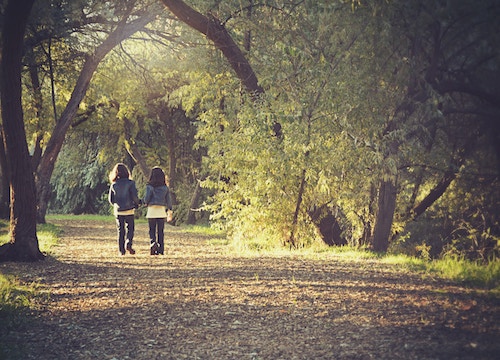Growing Up Green: The Importance of Teaching Your Children About Sustainability
Children are naturally drawn to their environment. They see the world as one big playground to explore and experience, but it’s up to the adults around them to show them their roles as stewards of the earth. It’s our duty to teach them good practices that could eventually form into habits. Teaching children about keeping the earth in good shape when they’re young is the best way to ensure that they grow into environmentally conscious adults. Something as simple as reducing plastic consumption is an easy and realistic way to contribute to green advocacy.
Why Teach Your Kids About Caring for the Environment?
What your children do today will have a major impact on their future. Previous generations, including ours, have made quite a mess because of unbridled consumption. For instance, the world has already produced more than eight billion tons of plastics and of that total, less than 10% is recycled. The rest ends up in landfills or oceans, where it can be ingested and endanger marine creatures.
This is significant considering that plastics don’t completely dissolve until after 400 years. That piece of plastic that you allow your kid to just throw out on the street? It will outlive them by five generations. So, how do you teach your kids the importance of going green? Here are a few simple tips to follow.
- Start green education early
According to House Method, you should introduce your child to plastic alternatives early on. Instead of using water bottles, invest in a reusable bottle. Have your child come grocery shopping with you and explain how you can pick vegetables and fruits without having to buy plastic packaging. The sooner you start teaching your children about the importance of sustainability, the more likely that green habits will form.
- Be a role model
Children pick up habits from their parents. That’s why it’s important that you instill in them good practices through your own actions. Let’s take the example of climate forcing – this condition occurs when our human activity forces a change in either the cooling or warming balance in the atmosphere. Instead of taking the car to the grocery store and contributing to this issue, why not bike or walk your way there? This is not only a bonding opportunity, but a teaching moment as well. Some other things you can do include stop usage of plastic straws, bring a reusable bag with you when you go shopping, and recycling all papers and plastics in your home.

Source: Jamie Taylor – https://unsplash.com/photos/kTXEJSt1ruo
- Make the conservation fun
Let’s face it: most kids would rather be glued to their mobile phones or tablets than help you garden or prepare that compost pit. But you can make the whole activity fun with a little creativity. For instance, when you go exploring the park or the woods, you can challenge your child to a game to see who can pick up litter the fastest. For composting, let them help you dig for worms.
- Visit the zoo or nature reserves
Children really fail to appreciate the importance of conservation when they don’t explore their environment. You can rekindle their curiosity by taking them to see wildlife or birds they haven’t seen before. Introduce them to animals at the zoo and show them how nature doesn’t create an anomaly. Everybody has a role to play and humans have the biggest responsibility to make sure that the gains we made in nature conservation in recent years won’t be wasted.
Teaching your child about sustainability is both incredibly important and surprisingly easy. It just takes a bit of creativity, dedication, and consistency.
Guest post by Kaytie Pascale
Such a good post, its so important to teach our children to be environmentally friendly as they are the future!! Xx
LikeLike
Indeed
LikeLike
Brilliant read – role models are essential
LikeLike
indeed
LikeLike
When I have children I want to make sure they have respect for the environment and the planet. There are some really great points. I hope we can teach the next generation to do better than us
LikeLike
I think they are teaching us. Look at Greta Thunberg
LikeLike
What an interesting post. My father was a greenie so we grew up much more aware than most other children. I remember asking him what rubbish bins were for when I was very young as we never had one! However,there is always more to learn and more to do so starting young and setting an example are two excellent pieces of advice.
LikeLike
Sounds like an early example of zero waste. We’ve certainly reduced what goes in our bins
LikeLike
Some great tips there, it is best to try and teach them while they are young.
LikeLike
Indeed
LikeLike